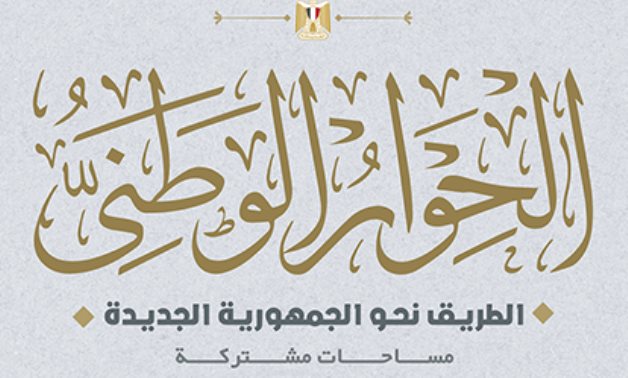
The National Dialogue- the photo courtesy of the National Dialogue's Facebook
CAIRO - 31 May 2023: The Education and Scientific Research Committee of the National Dialogue's community hub will hold a special session on Wednesday to discuss the draft law of the establishment of the Supreme National Council for Education and Training, as per the directions of the president of the republic.
The session will be held at the Cairo Convention Center in Nasr City.
Diaa Rashwan, general coordinator of the National Dialogue, said that the existence of a unified education bill will help in the progress of the system. He further suggested changing the name of technical learning schools; for example, technological secondary schools or agricultural and commercial secondary schools become business administration schools, provided that the curricula are also changed to comply with the labor market.
The general coordinator of the national dialogue also stated that the Ministry of International Cooperation should obtain more grants for the development of existing technical education schools and the establishment of new ones.
The draft law of establishing the Supreme National Council for Education and Training stipulates that a National Council called the "Supreme National Council for Education and Training", subordinate to the Pesidency of the Republic, be established with its headquarters in Cairo.
The Supreme National Council for Education and Training is set to be chaired by the prime minister; the minister of Defense and military production; the minister of Health and population; the minister of planning and economic development; the minister of finance; the minister of interior; the minister of communications and information technology; the minister of social solidarity; the minister of higher education and scientific research; the minister of education and technical education; the minister of immigration and expatriates; the minister of commerce and industry; the minister of manpower; the undersecretary of Al-Azhar; the president of Al-Azhar University; the secretary of the Supreme Council of universities; the deputy minister of education for Technical Education Affairs; the chairman of the board of directors of the National Authority for Quality Assurance of Education; and a group of experts chosen by the chairman of the council of ministers, for a period of 2 years renewable for another similar term.
The draft law approved that the council should meet at the invitation of its chairman, at least once every three months, and its meeting should be attended by the majority of its members, and that at least one third of experts should be among them, and it shall issue its decisions by a two-thirds majority vote of those present.
According to the draft law, the council aims to unify education and training policies of all types and all stages, achieve integration between them, and supervise their implementation, to link the outputs of education with the requirements of the local and international labor market, and work to promote scientific research.
The council undertakes all the necessary competencies to achieve its objectives, particularly the following:
1- Preparation and formulation of the national strategy for education and training of all kinds, and stages
2- Developing follow-up mechanisms and implementing the national strategy for education and training, in coordination with the ministries, concerned authorities, and agencies.
3- Reviewing and updating national priorities in the field of education and training in various sectors.
4- Developing unified policies for education and training of all kinds and stages, and following up on their implementation with the ministries, concerned authorities, and agencies.
5- Benefiting from the analysis of the database information of the labor market, in accordance with the national development plans.
6- Preparing recommendations related to the technical, administrative, legal and economic frameworks necessary for the development of the education and training system.
7- Following up the education and training system to achieve the state's goals, and proposing ways to develop and upgrade the system, taking into account the integration of its outputs with the requirements of the local and international labor market.
8- Developing a national plan to upgrade the infrastructure of technical education schools, and following up the implementation of this plan with the ministries and concerned authorities.
9- Approval of the national strategy to raise awareness of the importance of technical education, vocational training and the new specialities in this field, and its role in supporting the national economy; to improve the stereotype and societal status of technical education.
10- Following up the development and application of the National Qualifications Framework (NQF).
11- Preparing recommendations on the relevant legislation in the various fields of education and training, as well as proposals to amend them and support the mechanism of implementation of the national strategy for education and training.
12- Issuing a comprehensive periodic report on the development of the education and training system every 2 years, in cooperation with the competent bodies, to ensure quality and accreditation. The report is to be submitted to the Council of Ministers and the House of Representatives.
According to Article 5, the council shall have a general secretariat, headed by a full-time secretary general; and a number of experts in the fields of education and training shall enjoy the membership of the council. The number of experts should not be less than eight and not more than ten.
Comments
Leave a Comment